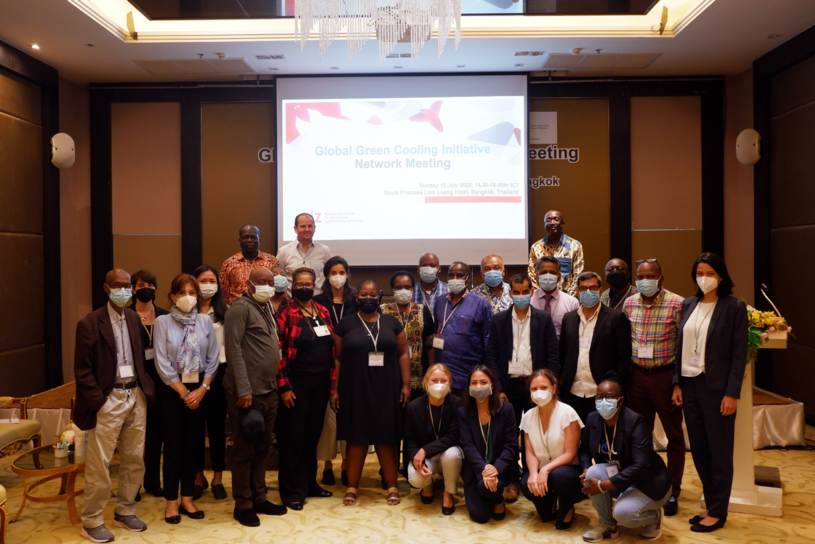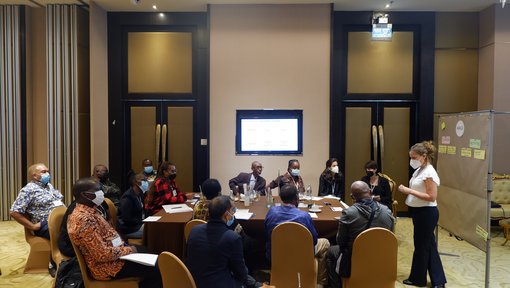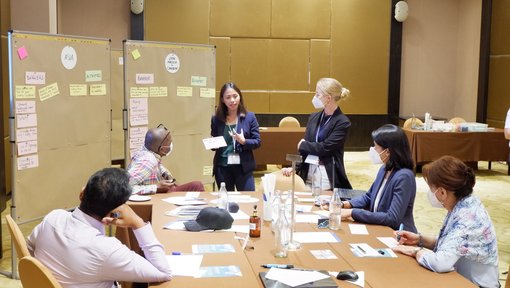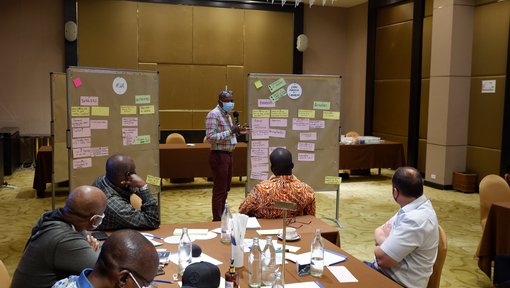On 10th of July 2022, the GCI global network meeting took place in the run-up to the 44th OEWG in Bangkok.
After a long period of not being able to meet in person due to the epidemiological situation, all parties involved were very happy to take the opportunity of the OEWG, which took place in Bangkok in presence, to meet in the framework of the Green Cooling Initiative Network Meeting. We had 37 participants from 18 countries worldwide.
After welcoming and opening remarks by Bernhard Siegele und Kerstin Kress from GIZ Proklima, Birgit Mayer presented the main objectives and approaches of the Green Cooling Initiative (GCI) and the Green Cooling Network on the global level: She highlighted the overall objective as strengthening different stakeholders towards the sustainable transformation of the RAC sector towards Green Cooling. Green Cooling refers to the concept of the use of natural refrigerants combined with highly energy efficient appliances, ideally sources by renewable energy sources. In its current phase, GCI will work with specific partner countries such as Bangladesh, Vietnam, Uganda, Honduras, Thailand, Kenya, and Colombia.
Alexander Pachai, a Senior Product Specialist at Jonson Controls, Denmark, also provided an input on recent Green Cooling developments. He concluded in saying that hydrocarbon refrigerants have a promising future and are more versatile than their fluorinated cousins. They are also more stable and less sensitive to pollution as well as a cheaper solution. Jonson Controls is also a member of the GCI Network.
Denise Andres from GIZ Proklima introduced the GCI regional hubs – Thailand, Kenya, and Colombia – which will initiate demand-oriented activities on the regional level. Such regional activities will aim to strengthen the capacity for green cooling based on identified needs and demands as well as enhance relevant knowledge for green cooling. It should also strengthen “green cooling communities” by targeting common barriers and facilitate exchange of experience and expertise among stakeholders in the region. In regional working groups, the participants discussed upcoming activities and relevant topics the countries would like to address on a regional level as well as the barriers they need to tackle in the future. The results were discussed in the plenum afterwards. A wrap up and closing of the event was held by Lara Teutsch and Kerstin Kress from GIZ Proklima.
Overall, it was insightful to listen to the challenges the partners perceive and experience in their countries and regions when it comes to green cooling technologies. While they are various and need further elaboration with regard to context, it is valuable for the project’s overall strategy in reaching different stakeholders and even more valuable for the regional hubs in defining targeted support.




